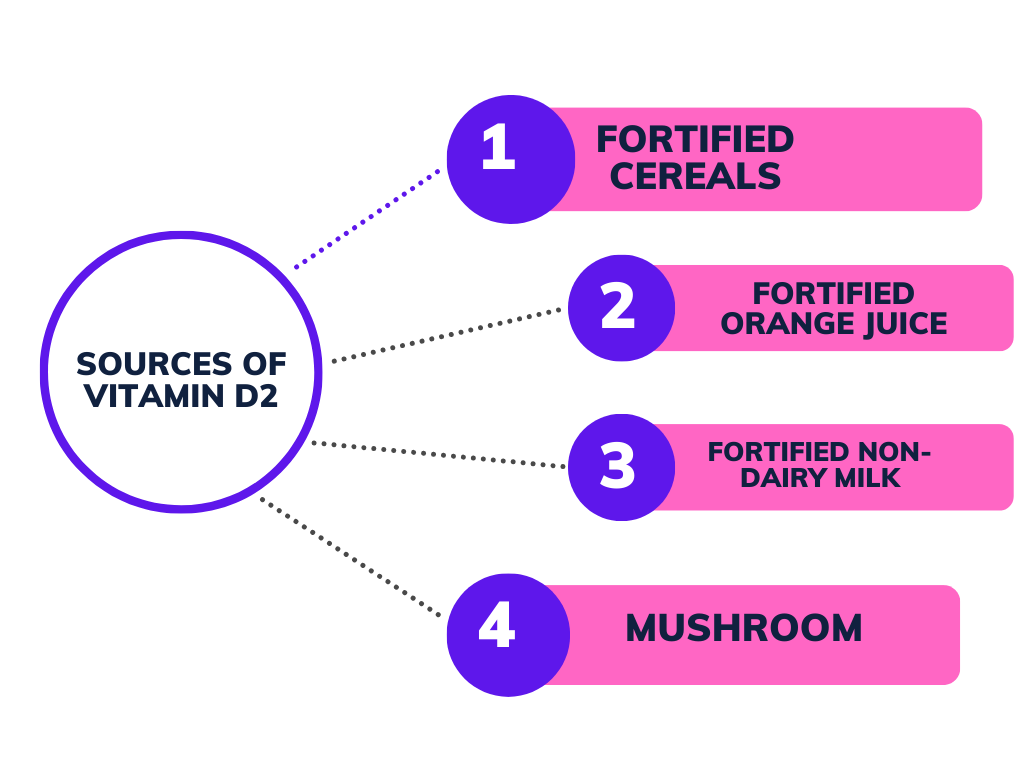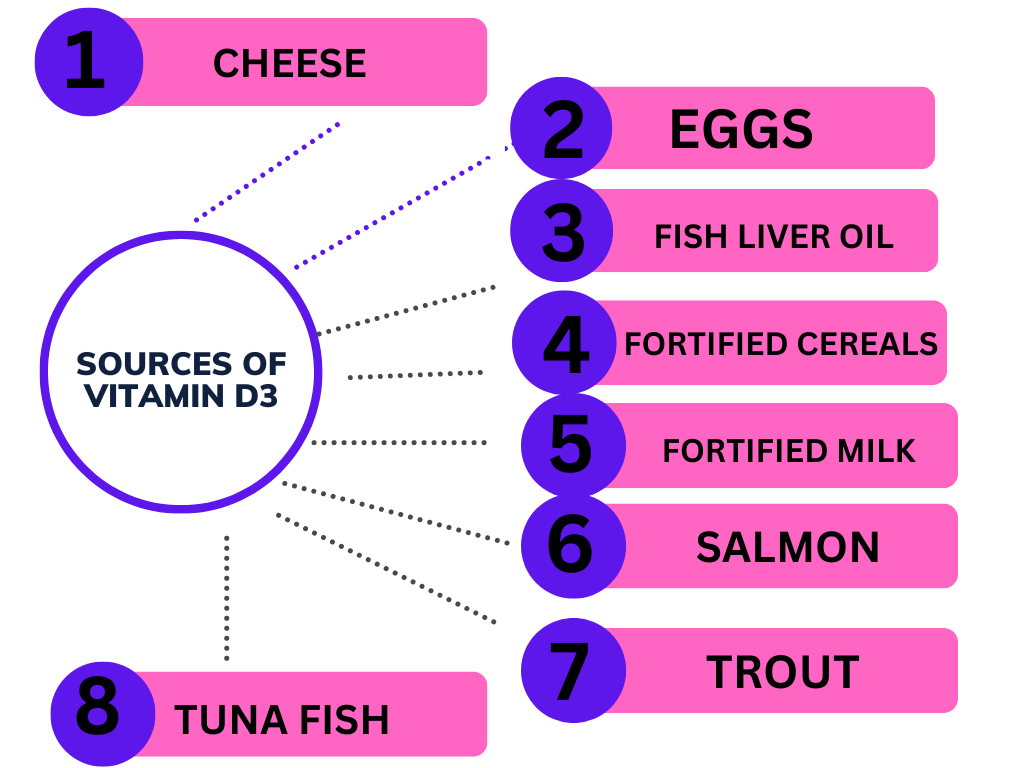
Vitamin D is also known as the sunshine vitamin for ages. And it’s indeed the sunshine of your health because it targets more than one area of your body’s health. Vitamin D plays a vital role in bones and teeth, the immune system, brain health, and regulating inflammation.
In this article, we will cover the types of vitamin D, its role and sources, and what happens to the body when people do not get enough of these vitamins.
VITAMIN D
Vitamin D is a fat-soluble vitamin that is important for good health. It is responsible for strong bones and teeth. It helps your body absorb calcium, one of the main building blocks for strong bones. Together with calcium, vitamin D helps protect your body from developing osteoporosis.
As I have mentioned above the word “sunshine” for Vitamin D is quite appropriate because as the name suggests its production can be triggered by exposure to sun. Apart from this vitamin D can also be obtained from red meat, egg yolks, and fatty fish like tuna and mackerel.
TYPES OF VITAMIN D
There are two forms of vitamin D, which are D2, also known as ergocalciferol, and D3, also known as cholecalciferol.
Vitamin D2: It is a vitamin D supplement, and can be obtained from some plant-based food, which synthesizes vitamin D in the presence of UVB light. Vitamin D2 can also be found in some types of mushrooms.
Sources of Vitamin D2 include:
Fortified cereals
Fortified orange juice
Fortified non-dairy milk (oats, almond soy)
Mushrooms

Vitamin D3: It can be obtained from animal sources or exposure to sunlight.
Sources of Vitamin D3 include:
Cheese
Eggs
Fish liver oils
Fortified cereals
Fortified milk
Salmon
Trout
Tuna fish

According to the National Institute of Health’s Office of Dietary Supplements, researchers are not sure yet if one is better than the other for human health as both Vitamin D2 and Vitamin D3 play the same role in the body, but are different in molecular structures.
How much daily vitamin D should one take?
Based on the Dietary Reference Intakes (DRIs) developed by expert committees of NASEM, the recommended intake of Vitamin D for different age groups and genders are as follows:

NOTE: In case of pregnancy and lactation period in women between 14-18 years, it recommends 15 mcg (600 IU) and 15 mcg (600 IU). Whereas, in women between 19 and 50 years age group, it suggests 15 mcg (600 IU) and 15 mcg (600 IU).
This guideline may vary from country to country based on some professional experts.
Now, you all may know how essential Vitamin D is for our body. It is well known for strong bones and teeth, but how about I tell you that it can do wonders for your skin? Yes, Vitamin D can create magic for you as well as your eyes.
Role of Vitamin D in Skin
Vitamin D acts as a shield for the skin, protecting it from sun damage and regulating cellular replication to combat premature aging. It promotes collagen production, keeping your skin youthful and vibrant. A deficiency in vitamin D can lead to skin issues like redness, dryness, psoriasis, and eczema.
Role of Vitamin D in eyes
Recent studies have highlighted the significance of Vitamin D in maintaining eye health. It aids in corneal wound healing, improves vision, reduces retinal inflammation, prevents macular degeneration, and regulates intraocular pressure, all essential for optimal eye function.
Vitamin D deficiency
Vitamin D is linked to the disease known as rickets. Rickets are the softening and weakening of bones in children due to vitamin D deficiency.
Conclusion:
Vitamin D, which is also known as “sunshine” is a wonderful vitamin. It is a very important nutrient that is responsible for strong bones and teeth. In addition, it also plays a vital role in skin and eye health. This multi-purpose vitamin is available in two forms vitamin D2 and Vitamin D3, and both are essential for good health.
FREQUENTLY ASKED QUESTIONS:
What is the difference between vitamin D, Vitamin D2, and Vitamin D3?
Vitamin D is the combined form of vitamin D2 and vitamin D3. Vitamin D2 is a plant-based vitamin, whereas vitamin D3 is an animal-based vitamin.
What is the major role of vitamin D?
Vitamin D plays a major role in the strengthening of bones and teeth. It also plays a vital role in skin and eye health.